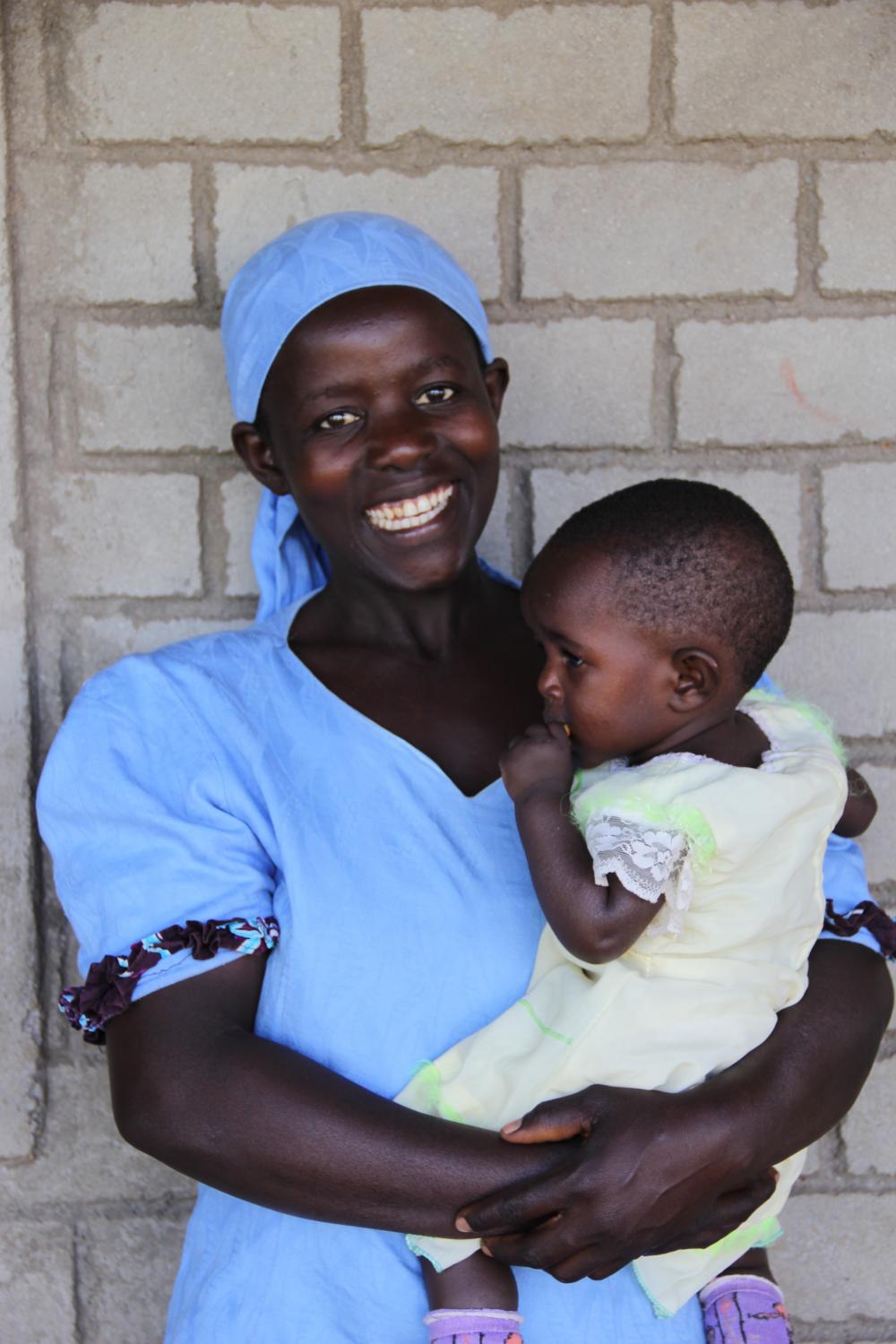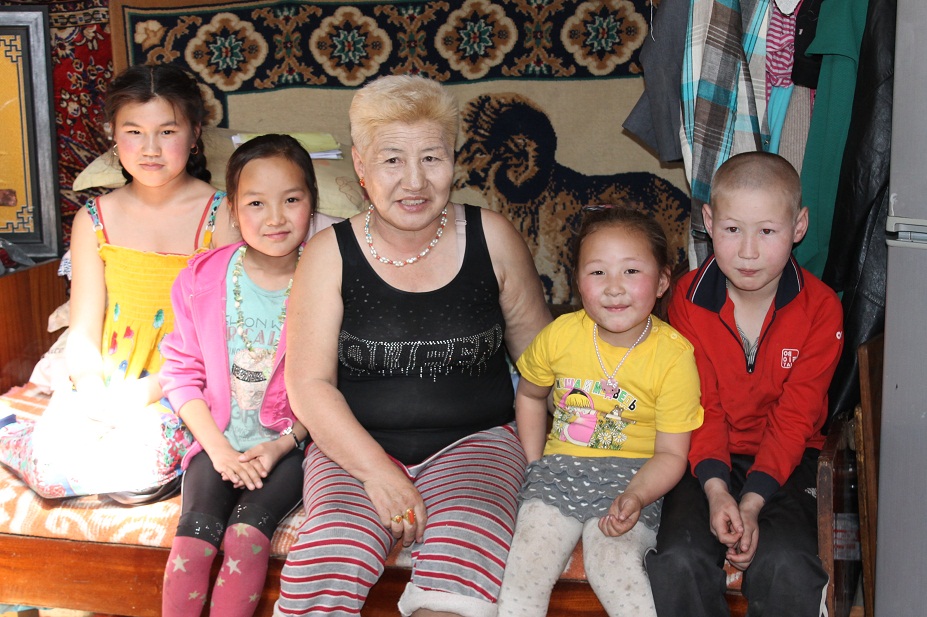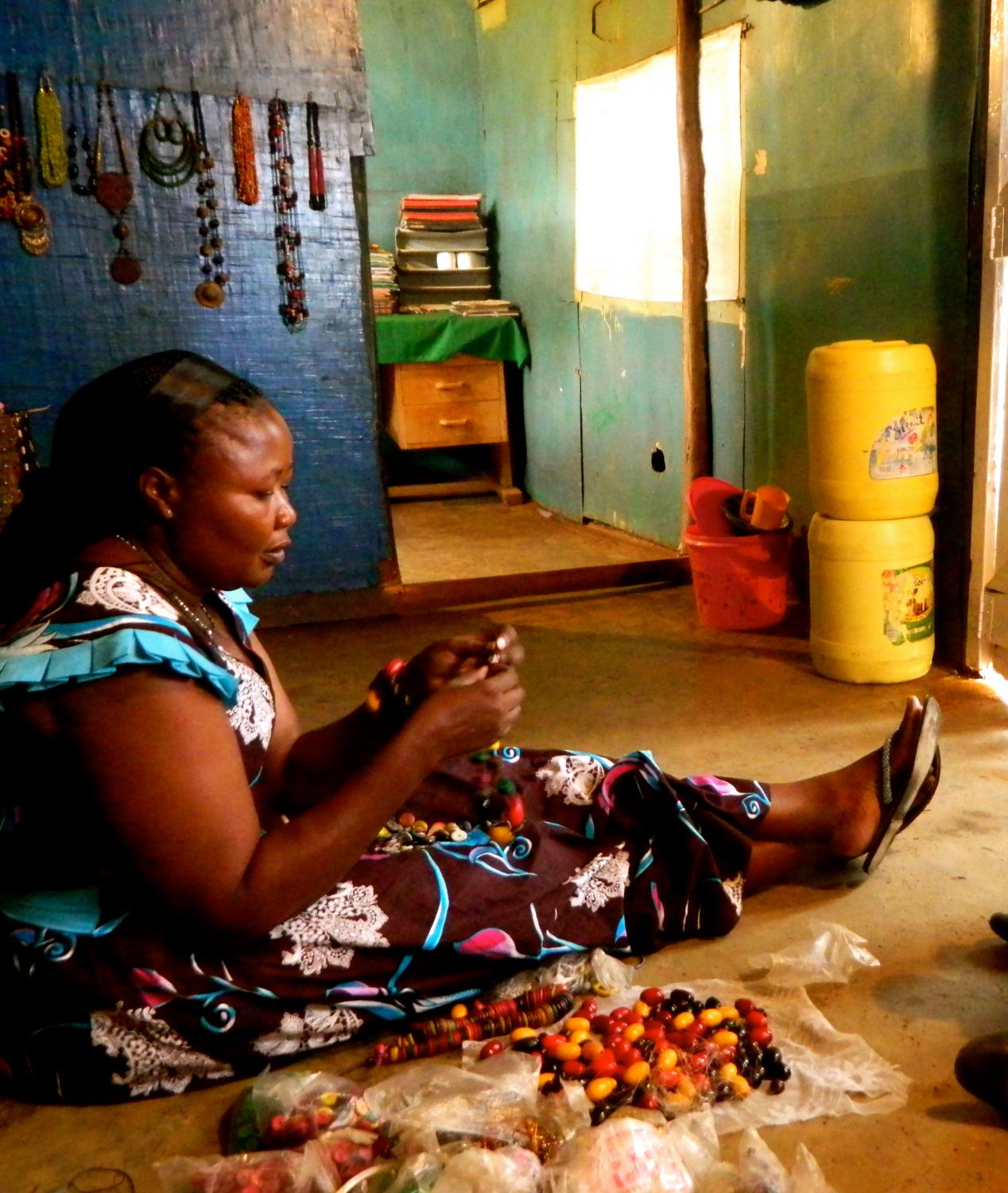Home • Microfinance • Article
Happy Mother's Day from Around the World
May 12, 2013
We've collected a few of our favorite (and cutest) photos of mothers, grandmothers and their children from the circle of Kiva borrowers around the world.
We hope that you make a this a special day to remember your mothers and any other women who cared for you like a mother!
P.S. A Kiva Card makes a great last-minute gift!
 Immi, with her 3 year old son, at her home in Bilasuvar, Azerbaijan, a new internally displaced persons (IDP) settlement built in 2003. In their new home, Immi's family is rebuilding their lives thanks to your support. With the Kiva loan, she was able to buy seeds, fruit tress, and fertilizer. As with all the IDPs in new government settlements, she was provided a plot of land. The food she grows and delivers using her brother's car is the primary source of income for her family. Immi wants to expand her business and grow more produce. Dimitri Zakharov, Azerbaijan
Immi, with her 3 year old son, at her home in Bilasuvar, Azerbaijan, a new internally displaced persons (IDP) settlement built in 2003. In their new home, Immi's family is rebuilding their lives thanks to your support. With the Kiva loan, she was able to buy seeds, fruit tress, and fertilizer. As with all the IDPs in new government settlements, she was provided a plot of land. The food she grows and delivers using her brother's car is the primary source of income for her family. Immi wants to expand her business and grow more produce. Dimitri Zakharov, Azerbaijan Grameen Foundation borrower, Alice, with two of her sons in Buwama, Uganda, looking at their piglet named Kiva. Alice used the money she made from her work as a Grameen Community Knowledge Worker to purchase the piglet. Additional income pays school fees for her 4 boys. Her dream is to one day be an agricultural specialist. Katie Krummel, Uganda
Grameen Foundation borrower, Alice, with two of her sons in Buwama, Uganda, looking at their piglet named Kiva. Alice used the money she made from her work as a Grameen Community Knowledge Worker to purchase the piglet. Additional income pays school fees for her 4 boys. Her dream is to one day be an agricultural specialist. Katie Krummel, Uganda KADET borrower Keziah and one of her children in their plot of snow peas planted with a Kiva loan. Her wish is to open a small shop near her farm so she can supplement her farm income and provide school fees for her children. Jada Tullos Anderson, Kenya
KADET borrower Keziah and one of her children in their plot of snow peas planted with a Kiva loan. Her wish is to open a small shop near her farm so she can supplement her farm income and provide school fees for her children. Jada Tullos Anderson, Kenya FPW borrower, Dung, with one of her children at her home in the central Vietnamese province of Thanh Hoa. With her Kiva loan, Dung was able to buy chicks to raise in her chicken coop, as well as a motorbike-washing machine. She is constantly thinking of new ways to diversify her income to support her family (opening a beverage stand is next on her list), which makes it easy to see why her peers elected her to lead their solidarity group. Jon Fung, Vietnam.
FPW borrower, Dung, with one of her children at her home in the central Vietnamese province of Thanh Hoa. With her Kiva loan, Dung was able to buy chicks to raise in her chicken coop, as well as a motorbike-washing machine. She is constantly thinking of new ways to diversify her income to support her family (opening a beverage stand is next on her list), which makes it easy to see why her peers elected her to lead their solidarity group. Jon Fung, Vietnam. The "Good Samaritans" trust bank meets once a month to make loan repayments and receive financial education training. These indigenous mothers support their families through weaving, planting, and raising farm animals with a loan from Friendship Bridge. Jeffrey Nelson, Guatemala
The "Good Samaritans" trust bank meets once a month to make loan repayments and receive financial education training. These indigenous mothers support their families through weaving, planting, and raising farm animals with a loan from Friendship Bridge. Jeffrey Nelson, Guatemala Emily is a Kiva Zip borrower from Smart Center, a social enterprise where women learn to read, write and are given entrepreneurship training. Emily wants to expand her existing cereals business where she sells in the local open markets. Her business allows her to feed her children and send them to school. Shaherose Jamal, Kenya, Kiva Zip
Emily is a Kiva Zip borrower from Smart Center, a social enterprise where women learn to read, write and are given entrepreneurship training. Emily wants to expand her existing cereals business where she sells in the local open markets. Her business allows her to feed her children and send them to school. Shaherose Jamal, Kenya, Kiva Zip Meet XacBank borrower Zoya and four of her grandchildren in their ger in Ulaanbaatar. Widowed at 48, she started producing and selling organic dairy products in the countryside to help support her family. Her entrepreneurial spirit led her to start bartering for meat products, which she regularly brings to Ulaanbaatar to sell to clients in the city. There, she purchases clothing and other accessories and brings them back with her to sell in the countryside. Jane Imai, Mongolia.
Meet XacBank borrower Zoya and four of her grandchildren in their ger in Ulaanbaatar. Widowed at 48, she started producing and selling organic dairy products in the countryside to help support her family. Her entrepreneurial spirit led her to start bartering for meat products, which she regularly brings to Ulaanbaatar to sell to clients in the city. There, she purchases clothing and other accessories and brings them back with her to sell in the countryside. Jane Imai, Mongolia. Marguba from Tajikistan and her daughter with the cow purchased with a Kiva Start-Up loan. Marguba purchased a pregnant cow and now has milk for her three children -- along with a mischievous little calf with a heart shaped spot on its head. Davinia Cogan, Tajikistan
Marguba from Tajikistan and her daughter with the cow purchased with a Kiva Start-Up loan. Marguba purchased a pregnant cow and now has milk for her three children -- along with a mischievous little calf with a heart shaped spot on its head. Davinia Cogan, Tajikistan Pamela, a mother of four, sits on the floor of her shop in the Kibera slum in Nairobi. She has received two loans from Kiva Zip to add stock to her shop which have helped to increase her revenue by over 50%. Pamela runs an organization that provides vocational training to widows and at-risk women, many of the whom see her as a mother to the whole community. Rachel Davis, Kiva Zip, Kenya
Pamela, a mother of four, sits on the floor of her shop in the Kibera slum in Nairobi. She has received two loans from Kiva Zip to add stock to her shop which have helped to increase her revenue by over 50%. Pamela runs an organization that provides vocational training to widows and at-risk women, many of the whom see her as a mother to the whole community. Rachel Davis, Kiva Zip, Kenya Luisa lives in Ecuador with her daughter, granddaughter and son-in-law. With her Kiva loan, she has expanded her shop and bought computers that she rents out by the hour for internet access. Her loans have helped her buy the house where she lives and operates her shop. She has just been voted in as the president of her solidarity group and his helping other women get loans to improve their lives. She calls herself the "neighborhood mom." Leo Della-Moretta, Ecuador
Luisa lives in Ecuador with her daughter, granddaughter and son-in-law. With her Kiva loan, she has expanded her shop and bought computers that she rents out by the hour for internet access. Her loans have helped her buy the house where she lives and operates her shop. She has just been voted in as the president of her solidarity group and his helping other women get loans to improve their lives. She calls herself the "neighborhood mom." Leo Della-Moretta, EcuadorPREVIOUS ARTICLE
Dia de la Mama: A snapshot of single motherhood in Santiago, Chile →NEXT ARTICLE
Up In the Caucasus: Photos of History in the Making →













